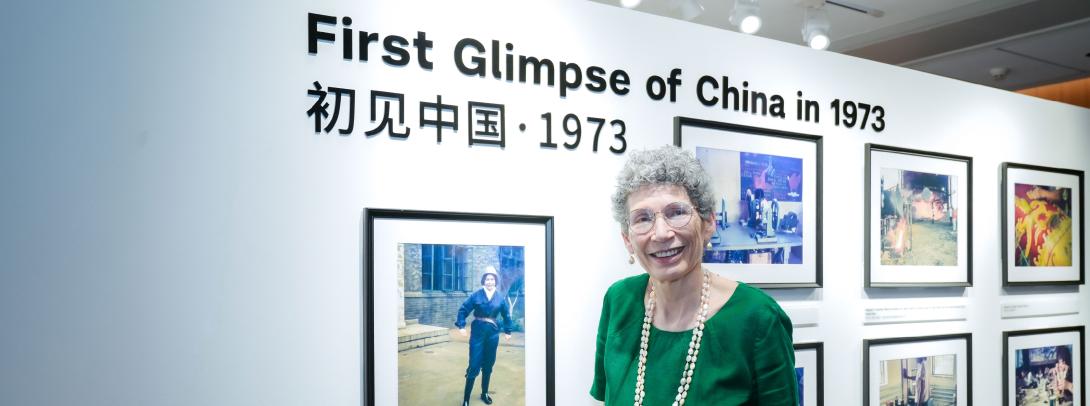Joanna Waley-Cohen’s connection to China began in 1973, when as a student in Chinese Studies at the University of Cambridge, she first visited the country with a delegation from the Society for Anglo-Chinese Understanding. It was a rare opportunity at the time -- China was still in the midst of the Cultural Revolution, and very few foreigners were allowed in. That journey sparked a fascination that has lasted over 50 years.
“A Lifetime Engagement,” now on display at NYU Shanghai’s B2 Art Gallery, features photos taken by Waley-Cohen during that formative trip more than 50 years ago, alongside images reflecting her journey at NYU Shanghai since its founding in 2012. The exhibition, organized by the Provost’s Office and the Library, is on display from April 18 to May 1.
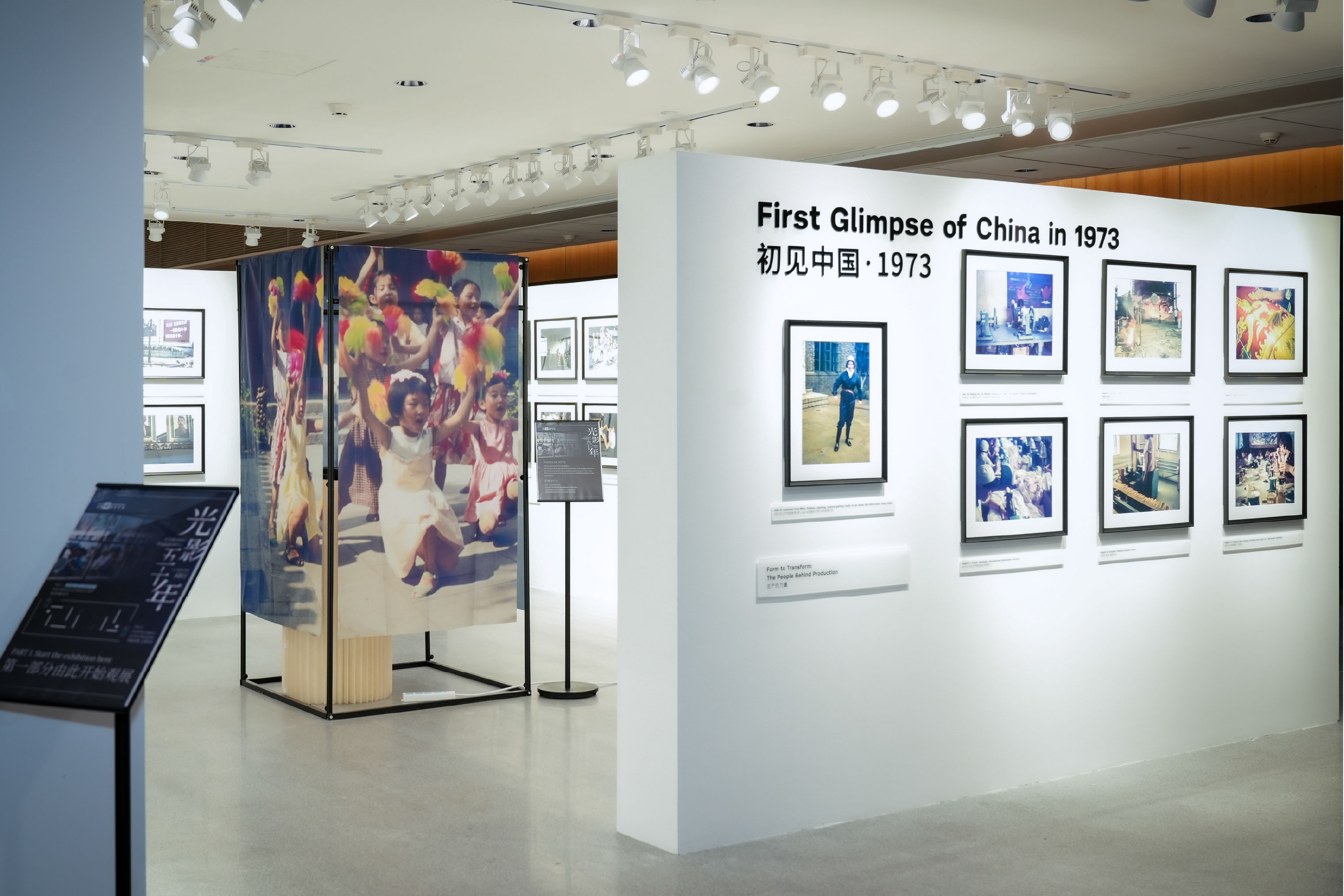
“More than anything, the trip cemented what became a lifelong interest in China and in everything to do with it, and showed me what a vast and amazing world was out there waiting for me to learn about it,” Waley-Cohen said. “And that is what I have been trying to do ever since.” Beyond her leadership role at NYU Shanghai, Waley-Cohen is also the Julius Silver Professor of History and the author of three influential books on China.
The 1973 trip was no small feat. She spent ten days traveling by Trans-Siberian Railway from London through Moscow and finally into Beijing. She traveled from Beijing to Shenyang, Tianjin, Qingdao, Jinan, Wuhan, Nanjing, and Shanghai, capturing moments of everyday life through her camera lens.
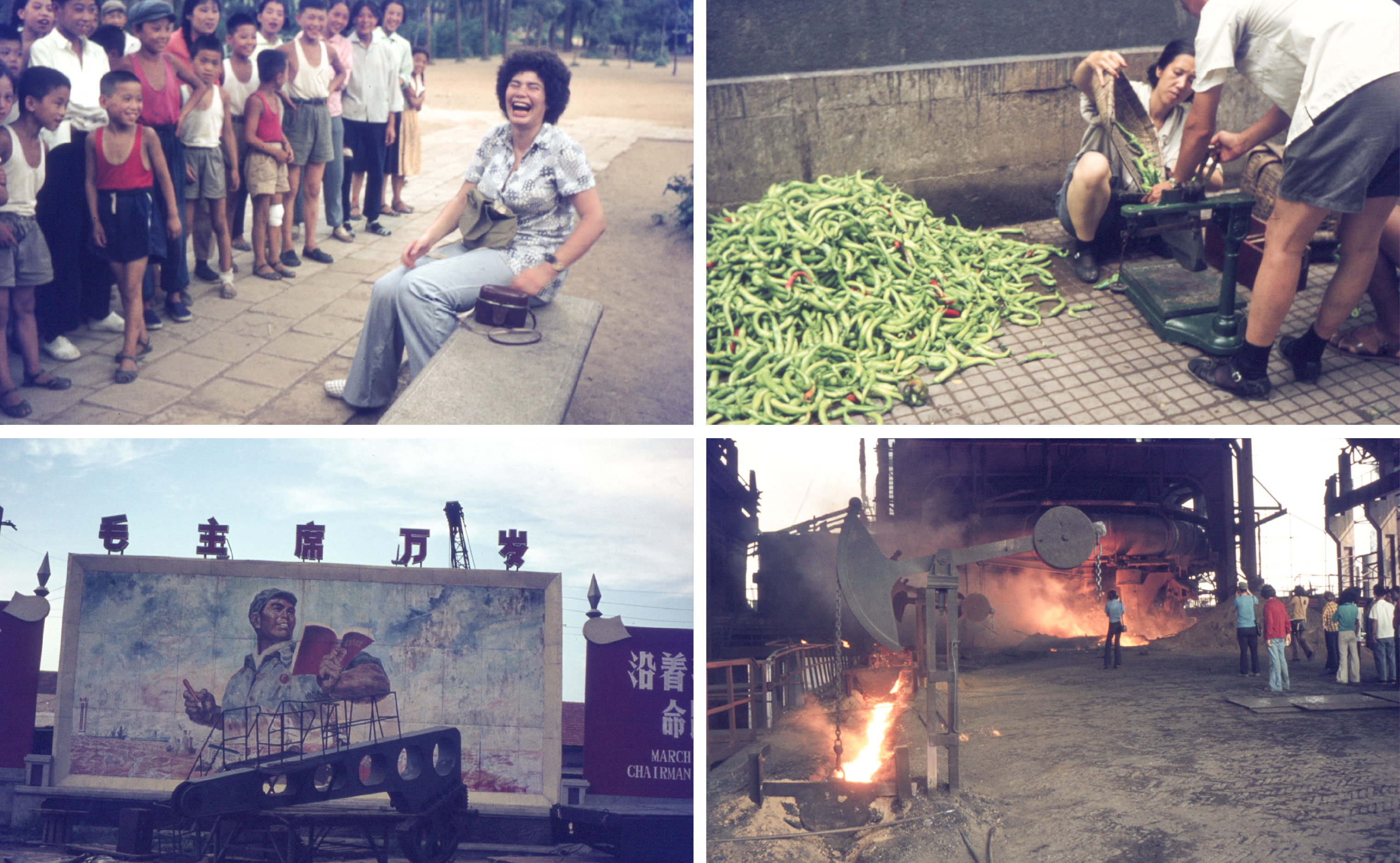
During the trip, Waley-Cohen visited key industrial sites such as the Laohutai Coal Mine and Anshan Steel Company in Liaoning Province. She was struck by the omnipresent propaganda posters, vibrant street markets selling watermelon and green chili peppers, and the spontaneous interactions with local people -- children greeting them at the Beijing No.2 Cotton Mill, curious faces peering through a bookstore window while Waley-Cohen was shopping in Shenyang, and laughter shared with locals in a park.
“It was only a six-week trip,” Provost Waley-Cohen said. “But it really has changed my perspective.”
The second part of the exhibition celebrates her tenure as provost of NYU Shanghai. From its establishment on the East China Normal University campus to its expansion into a full-fledged Sino-American research institution with a new campus in the heart of the New Bund area in Shanghai, Waley-Cohen has played a central role in shaping a vibrant academic community.
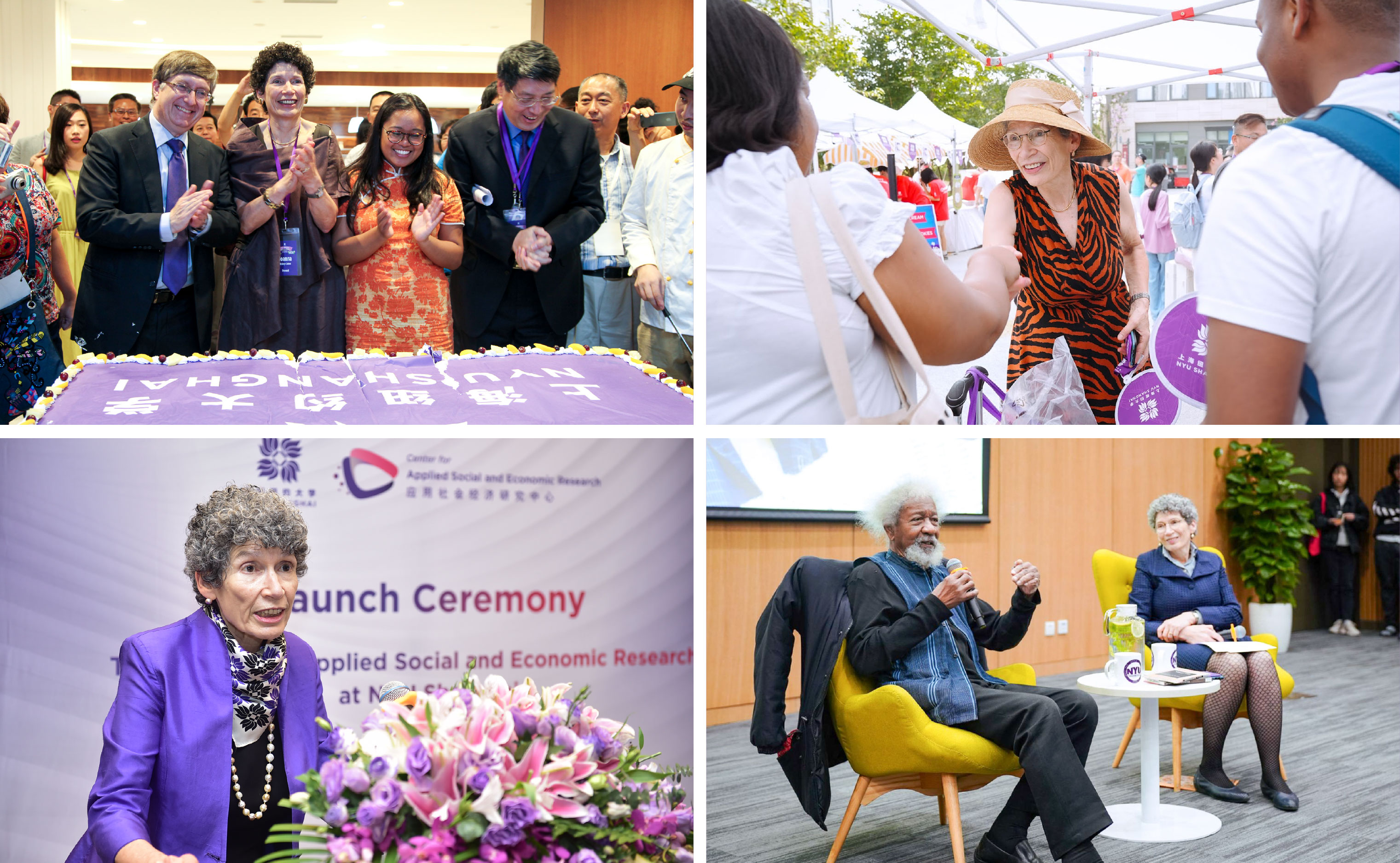
Her legacy includes developing undergraduate and graduate academic programs, recruiting world-class faculty, helping establish research centers such as the Center for Applied Social and Economic Research, hosting prominent figures like former US Secretary of Commerce Gina Raimondo, and engaging in thoughtful dialogues with luminaries like Nobel Laureate Wole Soyinka.
In recognition of her dedication to fostering long-lasting exchange between China and the rest of the world, she has been honored with the Magnolia Silver Award in 2015 and Magnolia Gold Award in 2019 by the Shanghai Municipal People’s Government, as well as the Friendship Award from the Chinese government in 2024.

Last Thursday, she engaged in an insightful conversation with Distinguished Global Network Professor of History Chen Jian and Chancellor Tong Shijun that was open to the entire NYU Shanghai community. The dialogue reflected on her academic journey and her lifelong commitment to exploring China’s connections with the world.
Chancellor Tong opened the discussion by recalling his first encounter with Waley-Cohen’s scholarship in 2005. He shared his admiration for her seminal work The Sextants of Beijing: Global Currents in Chinese History, noting how thoroughly he annotated it as an avid reader.
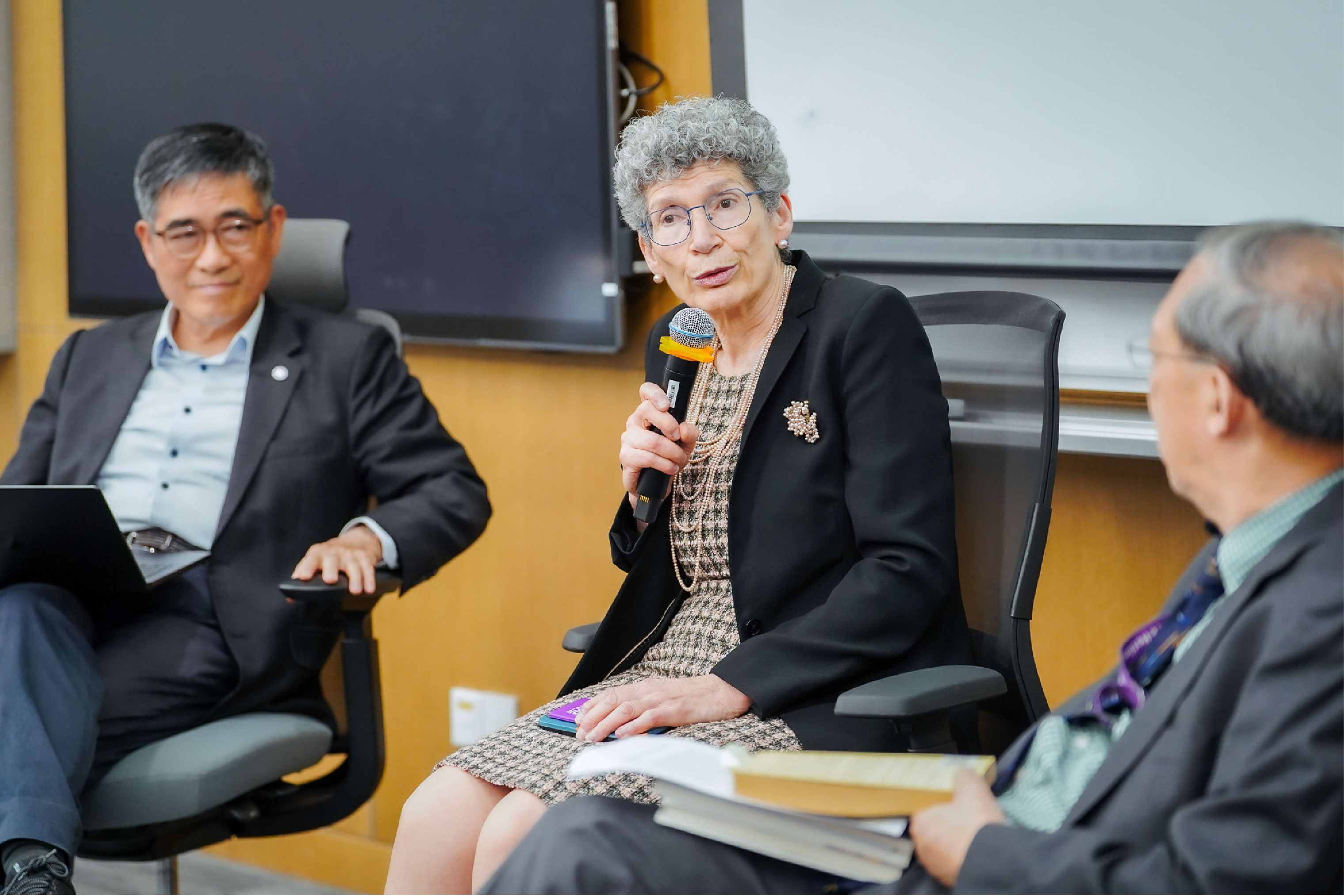
Professor Chen echoed this sentiment, hailing Waley-Cohen as “one of the world’s leading scholars of Chinese history.” He remembered encountering her work while preparing to teach a course at the University of Virginia more than twenty years ago. The book, he said, was “revolutionary” in dismantling the myth of China’s historical inwardness.
Professor Chen pointed to her role as a leading scholar of “New Qing History,” emphasizing the Qing dynasty’s status as a multi-ethnic empire.
During the dialogue,Waley-Cohen offered a candid and humorous account of her beginnings. She admitted that her decision to study Chinese was for “probably the worst possible reason” -- a teenage desire to do something “wild and different.” Encouraged by her sister, she applied to Cambridge and was accepted into its prestigious Chinese Studies program. “I was good at languages and not much else,” she joked. “But the program was about much more than the Chinese language – it included history, art, archaeology, and culture more generally.”
The conversation moved on to her 1973 trip, and Waley-Cohen shared a story about a visit to a rural commune near Qingdao. “The trip didn’t necessarily make me more interested in contemporary China -- I’ve always been more historically inclined, I guess,” she said. “But it definitely deepened my commitment to studying Chinese history.”
After moving from her home country of the United Kingdom to the United States in 1980, Waley-Cohen pursued a PhD in history at Yale University under the mentorship of the legendary historian Jonathan Spence. “I learned to tell history as a story,” she said, “to find some tiny little detail, and make a whole story out of it.”
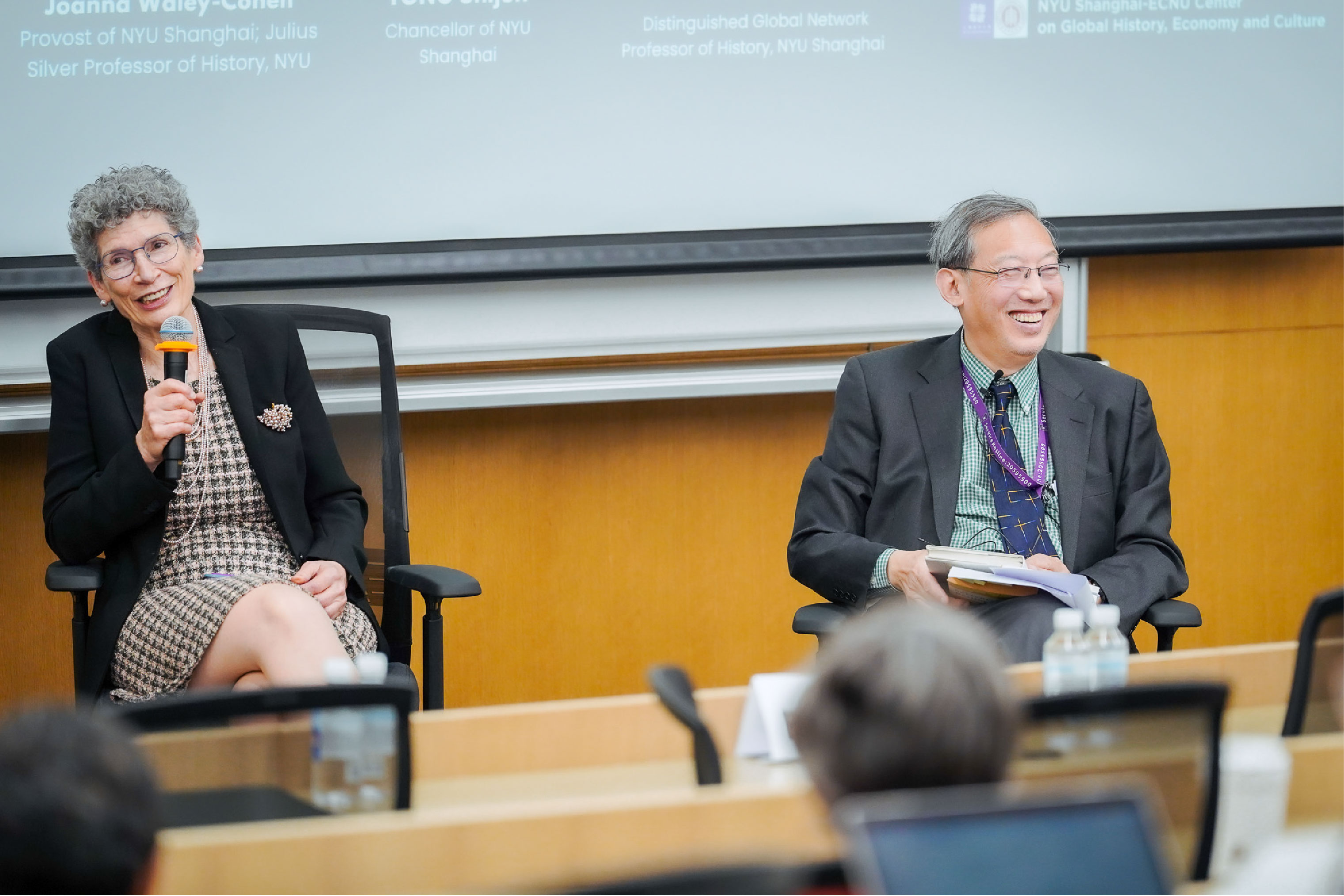
Her first major scholarly work, Exile in Mid-Qing China: Banishment to Xinjiang, focused on Qing Dynasty exile and law, specifically the banishment of officials to Xinjiang in the 17th and 18th centuries. It became a foundational text in Chinese legal history. Her second book, The Sextants of Beijing, was crafted with a broader audience in mind. Her mother served as a test -- “If she fell asleep while reading it, I knew I had to revise,” Waley-Cohen joked. Since then, balancing academic rigor with accessibility has become her signature style.
Looking ahead, while Waley-Cohen has considered revisiting food history, there are many other aspects of history that she has already touched on that she would like to pursue in more depth, including the early interactions of China and Europe. “Food history is often seen as a nice thing for a woman to do,” she added. “So I waited until I was a full professor with tenure to move into that area of study. But it is far easier just to talk about food than to produce a meaningful yet accessible work of historical scholarship.”
The evening concluded with a reflection on intellectual curiosity: “If you’re not interested in a topic yourself, you can’t make it interesting for others,” Waley-Cohen advised the audience. While she may not write another major book, she says she hopes to continue nurturing others in their scholarly pursuits.


